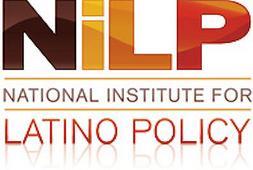
NiLP Guest Commentary
Puerto Rico and the Diaspora: A Moment of Opportunity?
By Dr. Víctor Vázquez-Hernández
 Today is the 148th anniversary of
El Grito de Lares in Puerto Ricom, which some mark as the day that Puerto Ricans first defined
themseves as a nation. It is, therefore, appropriate see this as a day
when we need to reflect deeply on the future of Puerto Rico, Recently,
Angelo Falcón penned
several pieces regarding the fiscal crisis in Puerto Rico, the Congress' response
(PROMESA) and the Puerto Rican Diaspora. He raised many good points, and
I want to add a few more to continue this conversation.
Today is the 148th anniversary of
El Grito de Lares in Puerto Ricom, which some mark as the day that Puerto Ricans first defined
themseves as a nation. It is, therefore, appropriate see this as a day
when we need to reflect deeply on the future of Puerto Rico, Recently,
Angelo Falcón penned
several pieces regarding the fiscal crisis in Puerto Rico, the Congress' response
(PROMESA) and the Puerto Rican Diaspora. He raised many good points, and
I want to add a few more to continue this conversation.
Puerto Ricans on the Island have always had a strained relationship with those who reside stateside. Having lived both on the island and on stateside, I can share that while we in the Diaspora are always ready to jump into the fray to support the latest crisis on the Island be it financial, political or the devastation of hurricanes, rarely has this kind of response been reciprocated. In the past, we have organized and mobilized a series of public protests across many US cities against the Navy in Vieques after the death of David Sanes, the gas pipeline, and many others.
However, the activism of Puerto Rican communities in the United States can, on certain issues, run counter to what the majority of Puerto Ricans on the Island want. An example of this the Financial Control Board that has been established because of the PROMESA Act. Most people surveyed by newspapers on the island are for the control board. We may disagree, but they want it.
Over the past few months, I have spoken with many family members and colleagues on the island about the crisis. Many of them, unlike me, are not independentistas or even progressives. They vote for the two traditional political parties (New Progressive or the Popular Democratic) although a few vote for the Independence Party. The most remarkable part of their analysis of the crisis on the island is their conclusion that it is the government of Puerto Rico that is in crisis, not the people themselves!
Their perception is that the fiscal control board is good because someone (mainly the Americans) have to put "verguenza" (shame)on the local politicians and their cronies. Nevertheless, there seems to be some naiveté here or simply not assuming any responsibility by the populace that elected the bums and crooks in the first place. Asking or accepting to have the "Americanos" clean house is like asking the fox to watch the henhouse!
Despite the numerous family ties and social relationships between individual
Puerto Ricans on the island and in the Diaspora, there has always been
a reticence to more firmly tie the political fortunes of each community.
It is not, for instance, that my daughter, who lives on the Island, does
not care about her dad or that my mother-in-law does not care about my wife. It is that collectively, the attention of Puerto Ricans on the island
is focused on getting through the day and on more local civic/political
issues and not in the Diaspora.
Despite this, what happens with the Diaspora is going to affect the island and vice-a-versa. Our eggs are already in the same basket; each side just needs to recognize this reality and listen to the other side. Our biggest challenge as Puerto Ricans is to create effective means to communicate, pueblo a pueblo, with all of our folks (and not just specific political and economic sectors such as the Left, independentistas, statehooders, or soberanistas) on the island and in the Diaspora.
I advise my colleagues in the Diaspora who are always courageously willing to fight for Puerto Rico to listen to the people of the island regarding this crisis. The people in Puerto Rico do not see what the full impact of the fiscal board can have. For those of us who lived through the experience of the Emergency Financial Control Board in NYC in the 1970s, we saw the devastation of the closing of hospitals, schools, day cares and others and the massive layoffs. We fought back and had a few victories like saving Hostos Community College. The impact of that board was terrible for our community.
Therefore, moving forward, all Puerto Ricans everywhere need to see that the Diaspora has always been down with Puerto Rico. We also need for the people of Puerto Rico to see that they need to also be down with us. We are not there yet, but as my abuela, Dona Isabel used to say, "Hablando, la gente se entiende!" ("Talking, people understand!")
Dr. Victor Vazquez-Hernandez is a historian, professor and author as well as the past President of the National Congress for Puerto Rican Rights [NCPRR] (2007-2011). His forthcoming book, Before the Wave: Puerto Ricans in Philadelphia, 1910-1945will be published this winter by the Center for Puerto Rican Studies (CUNY). He can be reached at vvazquez@mdc.edu.
_______________________________________________________________________________________________________
The NiLP Report on Latino Policy & Politics is an online information service provided by the National Institute for Latino Policy. For further information, visit www.latinopolicy. org. Send comments to editor@latinopolicy.org.